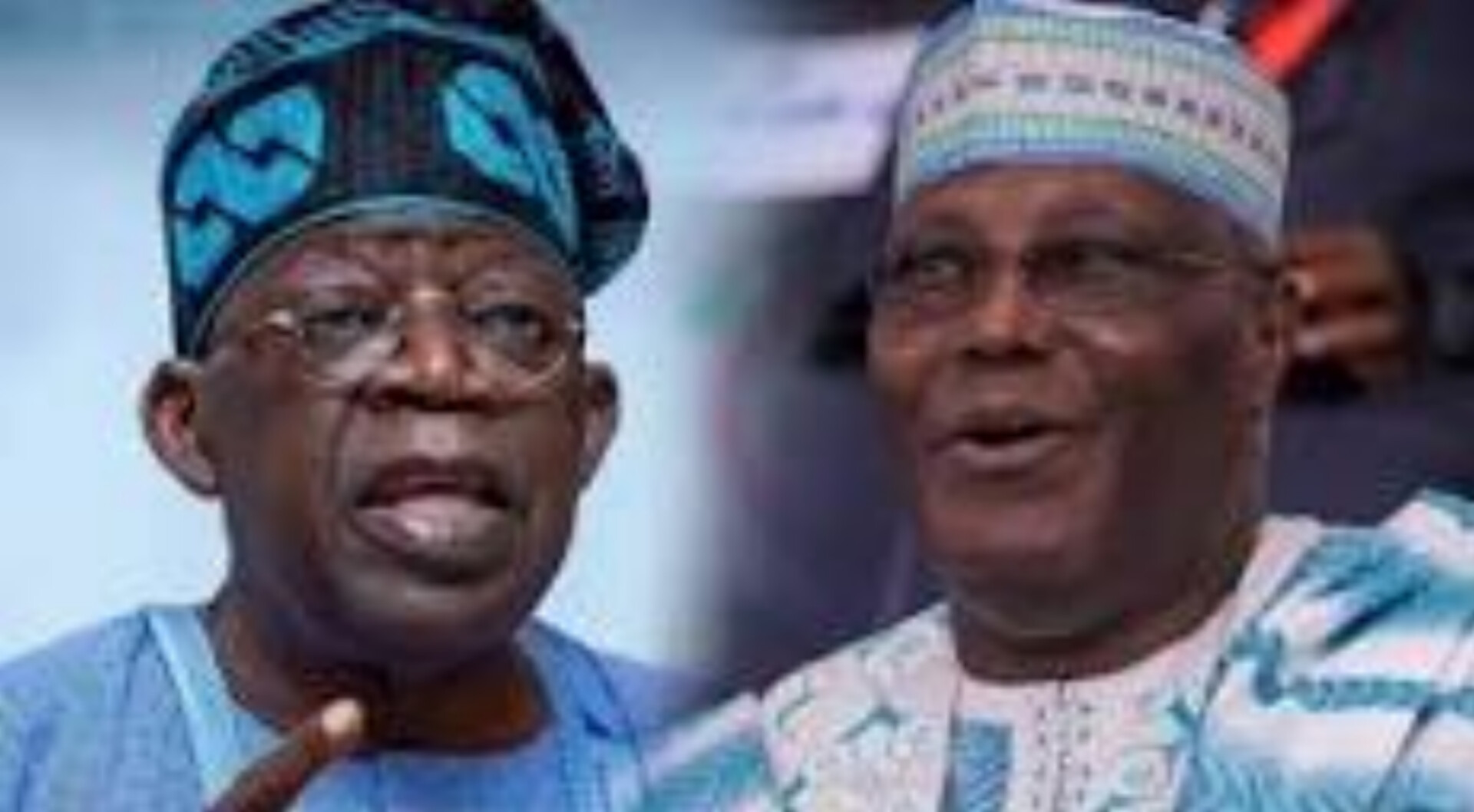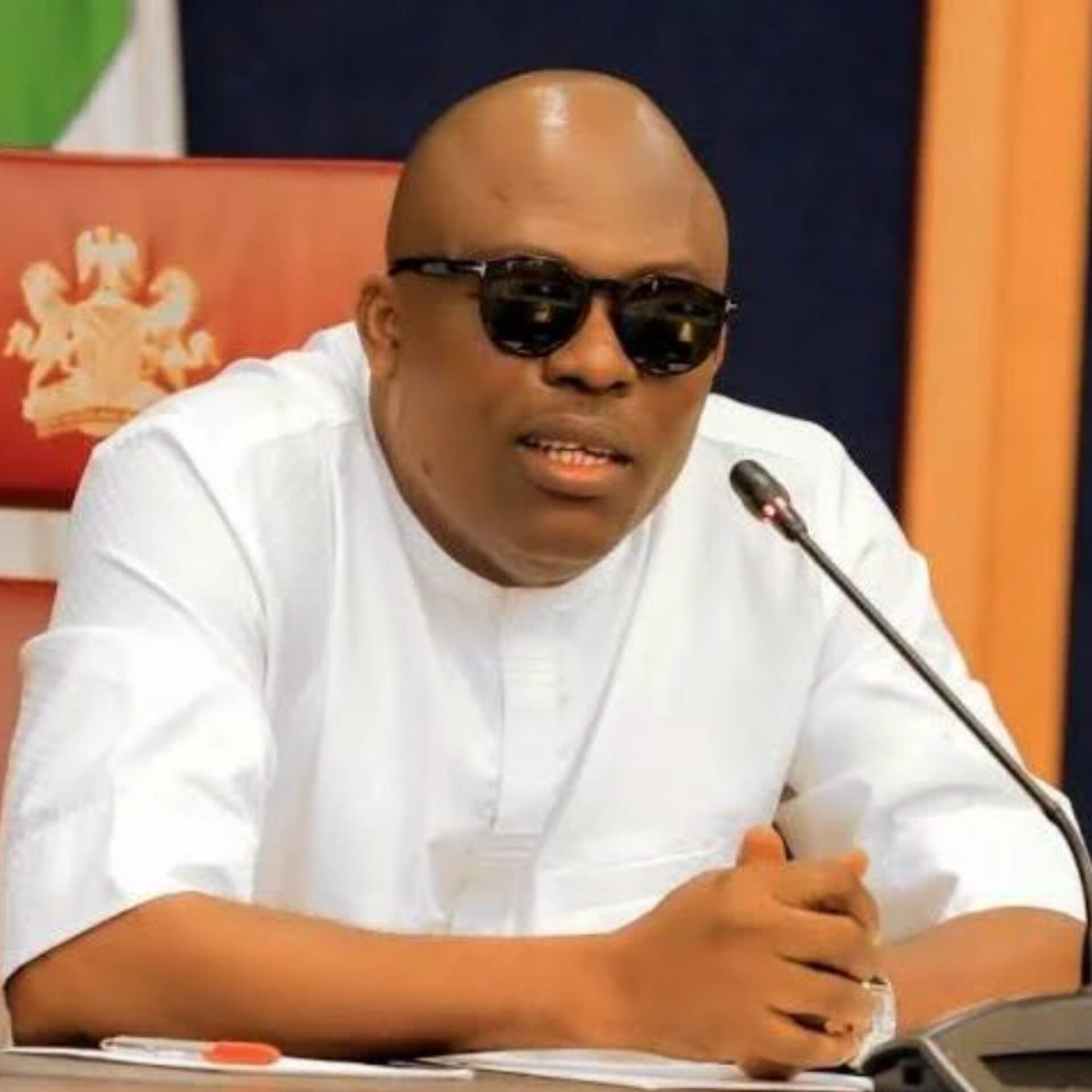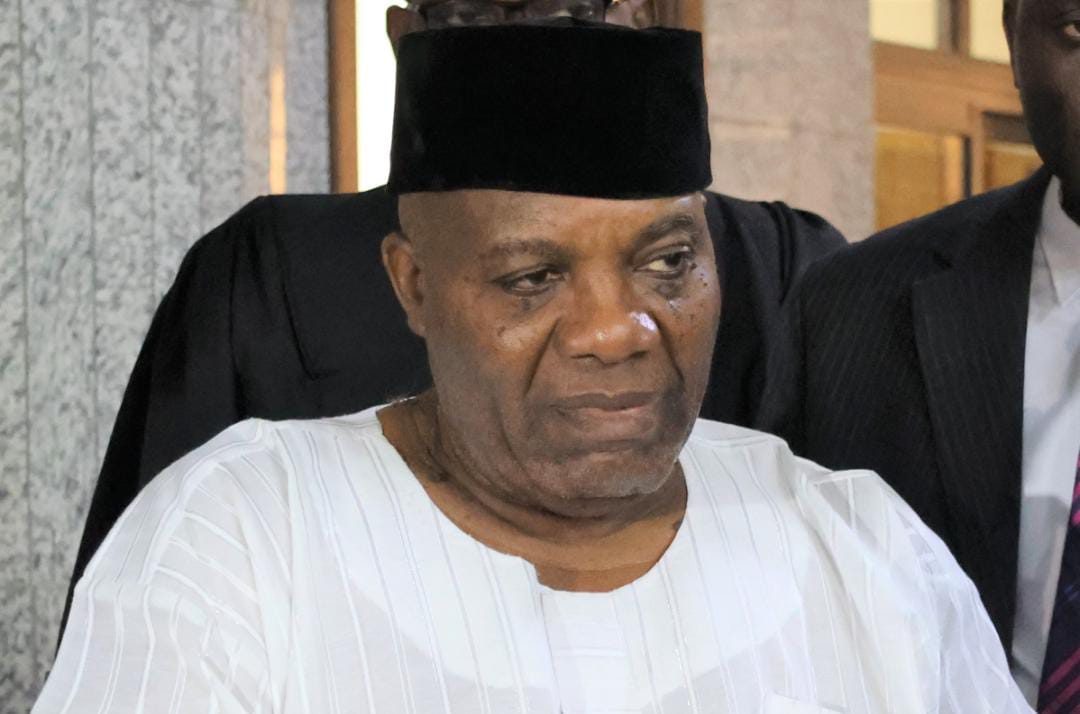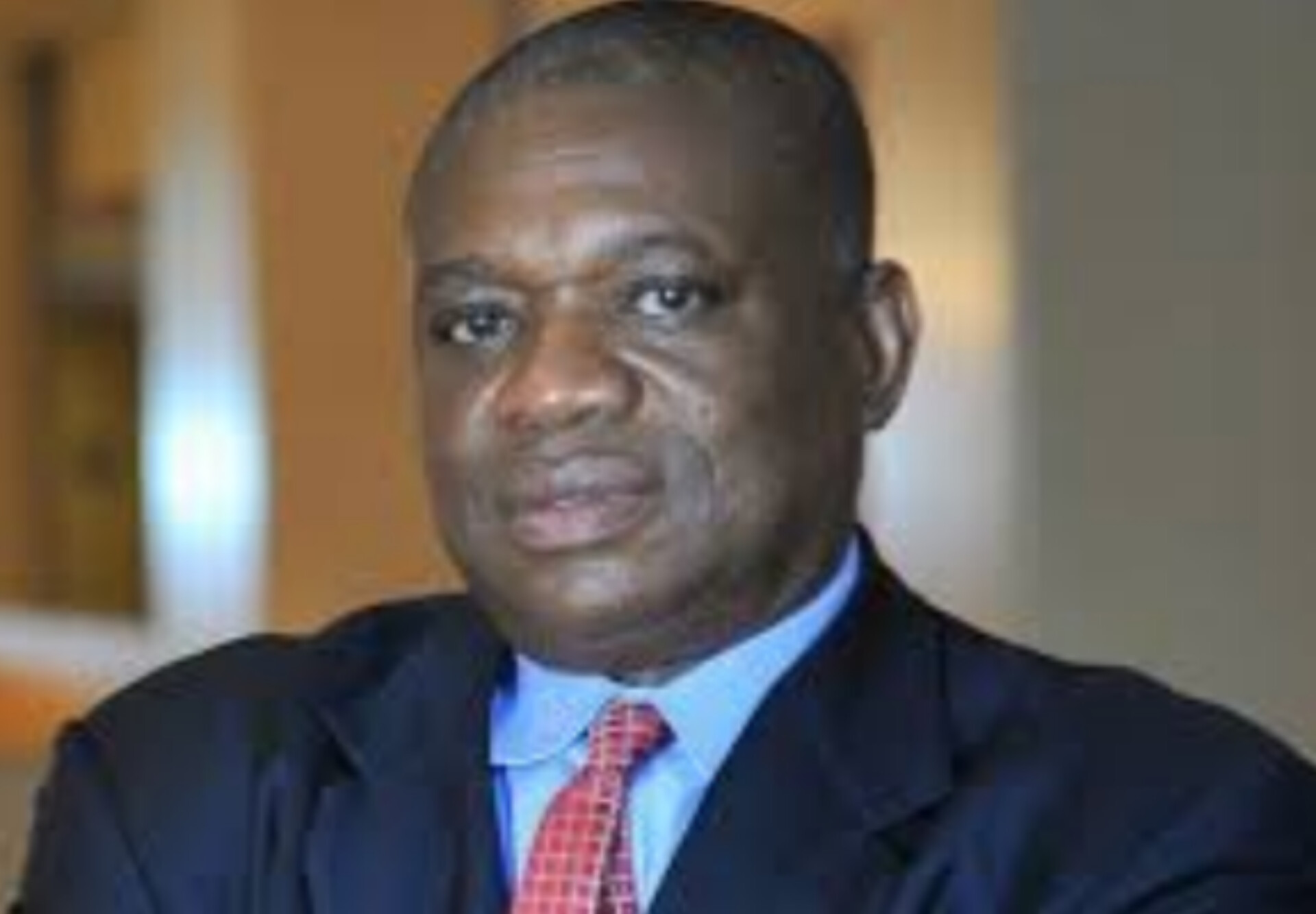The presidential candidate of the Peoples Democratic Party (PDP) Atiku Abubakar has approach the Apex Court with a fresh evidence of forgery from Chicago against the qualifications of President Bola Ahmed Tinubu in the February 25, 2023 presidential election.
Atiku, a former Vice President asserted categorically and authoritatively that the Diploma Certificate of the Chicago State University (CSU) used by Tinubu to secure qualifications for participation in the 2023 election is fake having been allegedly forged.
In a motion on notice filed by his legal team headed by Chris Uche (SAN), Atiku asked the Supreme Court to invoke its Order 2 Rule 12 of 1985 to admit the fresh evidence of certificate forgery and perjury in support of his pending appeal before the Court to do substantial justice to his case.

Atiku in the motion marked SC/CV/935/2023 prayed the Apex Court to grant him leave to produce the additional evidence and for the Court to receive the fresh evidence from him.
Respondents in the motion are the Independent National Electoral Commission, (INEC), Bola Ahmed Tinubu, and the All Progressive Congress (APC) as 1st to 3rd respectfully.
The motion is predicated on several grounds but mainly on the release of Academic Records of Tinubu, evidence of the Registrar of the Chicago State University before a United States of America Court and the deposition of the same witness in respect of the Diploma Certificate President Tinubu presented to the Independent National Electoral Commission INEC for the purpose of eligibility for the election.
Other grounds in the motion are that “The 2nd Respondent ( Tinubu) was not qualified at the time of the election to contest the election as required by section 137 (1) (j) of the
Corstitution of the Federal Republic of Nigeria 1999 (as amended).
“Based on facts available to the Appellants/Applicants (Atiku) at the time of filing their Petition, the 1st Appellants/Applicant (Atiku Abubakar) through his United States of
American lawyers, Alexander de Gramont and Argela M. Liu of the law firm of Dechert LLP, unsuccessfully applied to Chicago State University for the release of copies of the academic records of the 2nd Respondent.
“Given the strict privacy laws in the jurisdiction of Chicago State University, the request for the release of the academic records and certificate issued to the 2nd Respondent could not be granted without an order, of court and for the purpose of use in pending court proceedings.
The 1st Applicant through his said US-based Attomeys thereupon, brought an action in the U.S. District Court for the Northem District of Illhois in re: Application of Atiku Abubakar for an Order Directing Discovery from Chicago State University Case No. 23-CV-05099 for an order for the production of documents and testimony for use in a proceeding in a
foreign court, seeking documents and testimony from Chicago State University conceming the authenticity and origin of documents purporting to be the educational records of the 2nd Respondent, Bola A.Tinubu.
“The 2nd Respondent (Tinubu) applied and was joined in the matter as an Intervenor,
vehemently opposed the application.
“On September 19, 2023, the Court issued an order granting the application and
thereafter, the 2nd Respondent applied for an emergency stay of the Court Order, claiming that he would suffer irreparable damage and irjury if his educational records were released: which order of stay was granted.
“On September 30, 2023, the Court overruled the 2nd Respondent’s objections and ordered Chicago State University to produce tbe documents on October 2, 2023, and to produce a witness for deposition on October 3, 2023.
“On October 2, 2023. Chlcago State University produced the documents pursuant to the Coun’s Order.
“On October 3, 2023, also pursuant to the Court’s Order, Chicago State University provided a witness to give deposition testimony, in which deposition, Chicago State University disclaimed ownership and authorship of the document that the 2nd Respondent presented to INEC, purporting to be “Chicago State University certificate” and also disclaimed issuing any replacement certificate to him.
“The deposition was not in existence or available at the time of filing the petition.
“The deposition sought to be adduced is, along with its accompanying documents, such as would have important effect in the resolution of this appeal.
“The deposition is relevant to this matter, having confirmed that the certificate presented by the 2nd Respondent to the Independent National Electoral Commission (INEC) did not emanate from Chicago State
University, and that whoever issued the certificate presented by the 2nd Respondent, did not have the authority of the Chicago State Universiity, and that the 2nd Respondent never applied for any replacement certificate
nor was he issued any replacement certificate by the Chicago State University.
“The deposition which is on oath and deposed to in the presence of the 2nd Respondent’s Attomey is credible and believable and ought to be believed.
“The deposition is clear and unambiguous, and no further evidence is needed to be adduced on it. The evidence is such that could not have been obtained without reasonable
diligence for use at the trial, as the deposition required the cornmencement of the suit in the United States of America before receiving same. It is not possible to obtain the said evidence before the trial at the Court below.
“The deposition was made on October 03, 2Q23 after the conclusion of trial at the Court below, and was not available to be tendered at the trial.
“Presentation of a forged Certificate to the lndependent National Electoral
Commission by a candidate in an election to the office of President of the Federal Republic of Nigeria is a weighty constitutioral matter,
requiring consideration by the Court as custodians of the Constitution.
“The original certified deposition has been forwarded to the Honourable
Court by a letter addressed to the Chief Registrar of the Supreme Court
“It is in the interest of justice for the Honourabie Court to exercise its discretion in favour of the Appellants/Applicants.
The motion was supported by an affidavit deposed to on behalf of Atiku and PDP by one Uyi Giwa-Osagie, a legal practitioner.
The affidavit read in part “That the 1st Appellant/Applicant contested the election to the ofiice of the President of the Federal Republic of Nigeria on the platform of the 2nd Appellant/Applicant, which election was conducted by the 1st Respondent
on the 25th day of February 2023.
“That the 1st Respondent retumed the 2nd Respondent as the winner of the said election, and hence the Appellants, being dissatisfied with tle retum, filed a Petition on the 21st day of March 2023 before the Court of Appeal
sitting as the Presidential Election Petition Count.
“That the Court below had by a judgment delivered on 6th September 2023
dismissed the said Petition, whereupon the Appellants/Applicants appealed against the said judgment to this Honourable Court in
September 2023.
“That the Record of Appeal has been transmitted to this Honourable Court
and the appeal duly entered, and the said Record ofAppeal is now before
this Honourable Court, running into over 9,000 pages in 11 Volumes, upon which the Appellants/Applicarts are relying in this application.
“That I know that one of the grounds of the Appellants/Applicants’ Petition before the Court below is that the 2nd Respondent (Tinubu) was not qualified at the time of the election to contest the election and did not meet the constitutiolal theshold to contest
Meanwhile, no date has yet been fixed for hearing of the motion.




